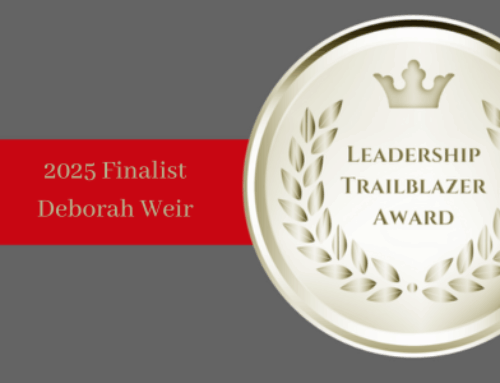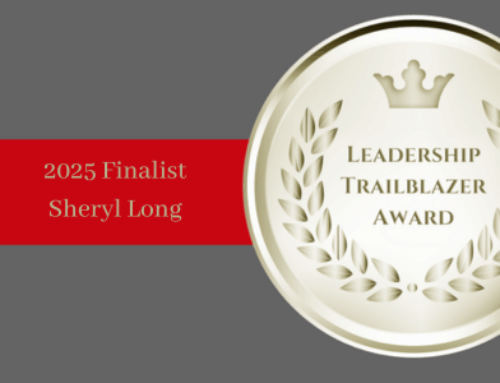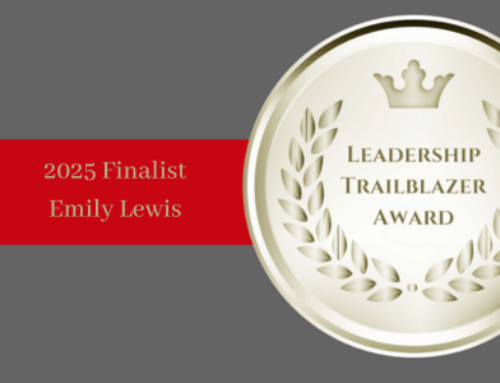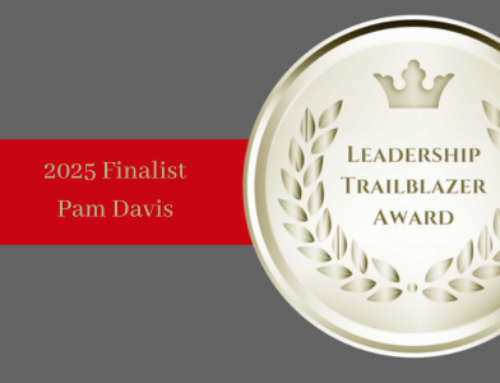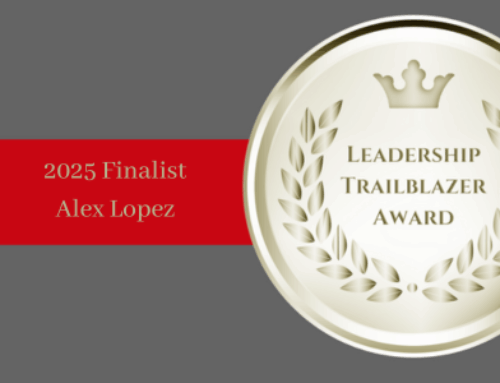MEET THE 2024 LEADERSHIP TRAILBLAZER FINALIST Sharon Subadan
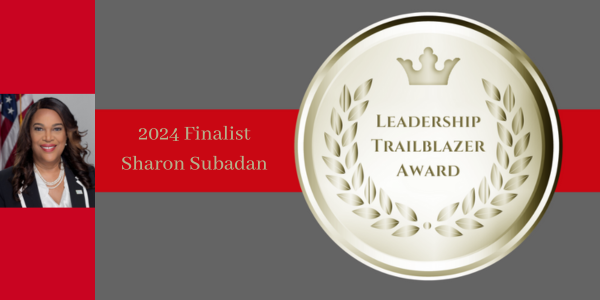
Today’s Trailblazer: Sharon Subadan
The League caught up with Trailblazer Finalist, Sharon Subadan, City Manager of South Fulton, Georgia to talk about being named a Leadership Trailblazer and having a career in public service:
Q: Congratulations on being named a finalist for the Leadership Trailblazer Award. What does it mean to you to be nominated?
I am incredibly humbled and honored to be nominated by one of my peers. As a leader, I have made efforts to pour into others. Over my thirty-four years in public administration, I have learned so much about our sector and what it truly means to be a leader. I share these lessons with others so that they can take advantage of my experience and, in some instances, learn from my mistakes. Being nominated by someone I consider a mentee is also heartwarming because it makes me realize that I impacted another woman in government and helped them through their career journey. I am grateful that the selection committee considered me worthy to be named among the finalists.
Q: What led you to a career in public service?
My journey into public service was neither planned nor expected. In the nineties, I worked as an agent for Eastern Airlines. When the company filed for bankruptcy and laid off thousands of workers, I was among them. At that time, my husband and I were expecting our first child and had a new home and two car payments. I was pregnant, unemployed, had no college degree, and, quite frankly, uncertain about our financial future. A close relative encouraged me to apply for entry-level positions with Miami-Dade County, which is all I was technically qualified for. After numerous applications, I was hired by the Miami-Dade Police Department after our first son was born as a data entry specialist, earning $4.25 per hour – a 57% pay cut from my previous job. Still, I was grateful to have a job, especially a job with benefits. After about a month of entering data into a green screen for ten hours daily, I realized the need to return to school. I enrolled in community college and earned an associate’s degree, followed by a bachelor’s degree and, much later, a master’s degree while raising a family and working full-time like many other women. I pursued my public administration career, which has led me to serve in six jurisdictions in progressively responsible roles over 34 years. Ironically, I never intended to stay with the County beyond my first year.
Q: Who were your mentor(s) or advocate(s) in your career?
While I haven’t had a formal mentoring relationship, there are individuals who have significantly impacted my path. I must start with my husband, Carl, who has been my greatest advocate, supporter, and cheerleader. He has been willing to put my career opportunities over his own and move all over the country to support my dreams. Carl has been my strong rock from Miami to Montgomery County, Maryland, to Tampa, Florida, Albany, Georgia, and now in the Atlanta Metro area.
In the professional space, I learned from leaders like Miami-Dade Transit Agency (MDTA) Director Roosevelt Bradley, who gave me my first management opportunity in Bus Maintenance to be an Assistant Superintendent. This role would make me the first woman to hold that position in the organization’s history. His example, support, and confidence catapulted me into a career in Fleet Management that uniquely prepared me for City Management. A distinctively unusual career path has allowed me to thrive, be an example to others, and frequently be the only woman of color in a room. Mayor Dorothy Hubbard – the first black female mayor of Albany, Georgia, guided me in my first City Manager role. She gave me sound, wise advice and showed me how to gain consensus using her emotional intelligence skills.
Q: What is the most important lesson you learned while coming up in your career?
The most important lesson I learned is to be bold in taking the path less traveled and to be willing to pursue non-traditional roles or positions that are not as attractive to others. An example is going to Bus Maintenance as a young administrator, which allowed me to apply strong financial management, human resource, purchasing, and asset management planning principles in a technical environment. Embracing my knowledge gaps and being willing to learn from others are other important career lessons I learned. I asked the mechanics and their supervisors to explain how to maintain equipment. They taught me the basics, including how to drive a bus and operate heavy equipment so that I could appreciate their needs first-hand.
Much later in my career, I accepted the City Manager role in Albany, Georgia, in rural Southwest Georgia. I had never lived or managed in an economically disadvantaged, diverse, and rural area. Mayor Dorothy Hubbard taught me about the city’s culture, and I learned how important it was to understand the community to be successful in that role.
Q: What advice do you have for women just beginning their careers who would like to be an executive in local government someday?
Develop the skill of building effective teams early in one’s career. The Ideal Team Player (Lencioni) is one of my favorite books. Searching for and developing team players who are humble, hungry, and smart is a key to team building. Almost all excellent outcomes, accomplishments, and results must be delivered by a team. Focusing on teams and learning to surround yourself with others who often have skills you don’t have are essential qualities to understand early in your career.
One of my favorite quotes is, “Don’t be afraid to go out on a limb. That is where the fruit is.” Being authentic and pushing past pressures to conform to traditional roles is rewarding. In my lifetime, I have experienced some “firsts” – the first black female Assistant Superintendent in Miami-Dade, the first black female Fleet Manager in Montgomery County, and the first to be nationally recognized. The first black female Deputy County Administrator in Hillsborough County, the first black female County Administrator in Douglas County. I may even be the first former black female Fleet Manager to become a City Manager. These experiences may make me a trailblazer, but I am more grateful that I have opened the door for others who have come or will be coming after me.
Q: What do you hope to leave as your legacy in local government when your career comes to an end?
Investing in others by giving my time and sharing knowledge and experience is rewarding. I have watched colleagues and friends grow into leadership roles, including City Management. My reputation is that of a leader who consistently gets things done and achieves results with effective teams. I hope that my legacy is that I made a positive and lasting impact on people and places. Sharing my experience has created buy-in and developed a cohesive vision in organizations. Translating vision into action-oriented results is a passion of mine, and I would like this passion to be my legacy.

